Say Yes to Education (SYTE) is a scholarship guarantee program that pledges to young children from disadvantaged backgrounds a fully paid, post-secondary education along with academic and social supports that follow children and their families throughout their elementary and high school careers. Since its inception in 1987, the SYTE program has ‘adopted’ cohorts of students in Philadelphia, Hartford, CT, Cambridge, MA, and New York City. Research for Action (RFA) has conducted two evaluations of the Philadelphia SYTE chapter. This report shares the results of the second evaluation conducted in partnership with ANALYTICA, Inc. The evaluation used propensity score matching to equate SYTE students with a comparison group in kindergarten and looked at academic and behavioral outcomes in first, second, third fourth and fifth grades. The evaluation defined impact according to educationally meaningful program effect sizes (d =.25). Results showed that most SYTE students were on track to graduate-few showed early warning signs of dropping out although their academic performance on standardized tests in fifth grade was worriesome. The group performed better than a comparison group, however, in some subjects each year although there were no differences in attendance or behavioral indicators in most years. Girls performed outperformed the comparison group each year in multiple subject areas on standardized tests, most notably science, while boys only outperformed the comparison group twice; 2nd grade spelling and 5th grade math. SYTE students were also more likely to stay in the school district of Philadelphia, have been identified for receiving special education services and services for giftedness and had fewer unexcused absences (though more excused absences) suggesting that parents were communicating with the school when the child was absent. There were several limitations to the study most notably, the small sample size, attrition of the comparison group from the SDP and missing data in the files obtained from the SDP. The report discusses ways in which these limitations were handled and implications for future research.
Making Progress: Longitudinal Outcomes Evaluation of the Say Yes to Education Program Kindergarten – 5th Grade
Herb M. Turner, III , Jason Schoeneberger , Tracey A. Hartmann , Eva Gold
Date: May 2007
Related Publications
Publication
The Implementation, Impact, and Cost Effectiveness of Developmental Education Reform in California’s Community Colleges, Interim Report #3
Kri Burkander, Dae Y. Kim, Lauren Schudde, Mark Duffy, Taylor Stenley, Alita Robinson, Julia Ransom, Justis Freeman, Alexis O’Herrick, Lindsey Liu
Publication
Literacy Practice Guides: Lessons from Four Philadelphia Literacy Pilot Programs Moving Students from Phonics to Fluency
Publication
Bringing History to Life: An Evaluation of the Penn Museum’s Unpacking the Past Program
Tracey A. Hartmann, Taylor Stenley
Publication
Educational Outcomes for Boys & Girls Club Members in California, 2021-22
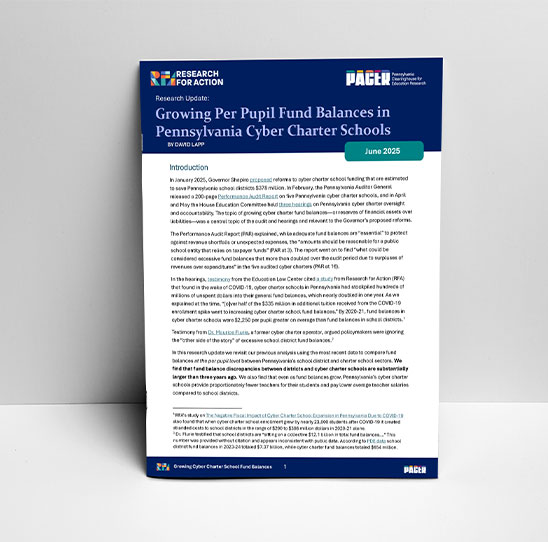
Publication
Growing Per Pupil Fund Balances in Pennsylvania Cyber Charter Schools
David Lapp
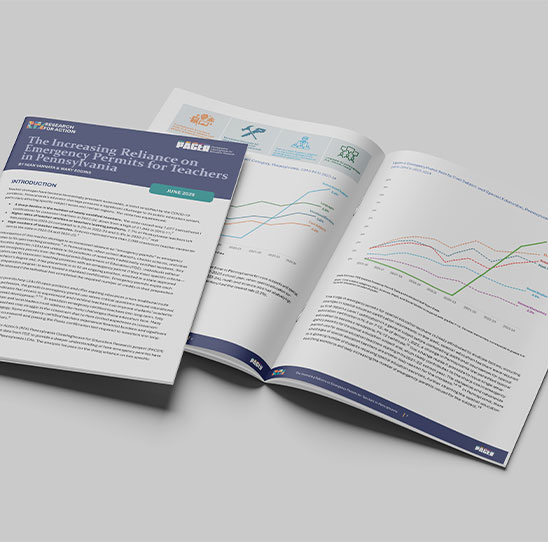
Publication
The Increasing Reliance on Emergency Permits for Teachers in Pennsylvania
Sean Vannata, Mary Eddins
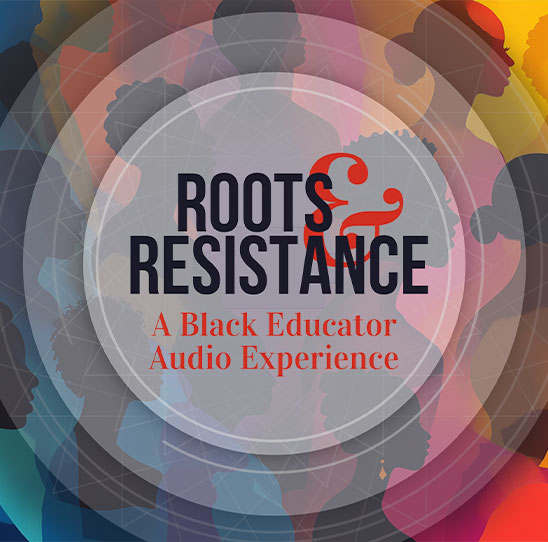
Publication
Small But Mighty – An Audio Documentary
Siettah Parks, Kevin Burgess, Alita Robinson, Mary Eddins
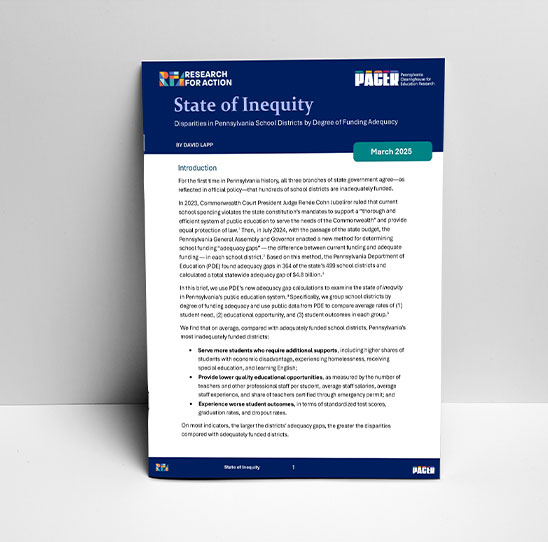
Publication
State of Inequity: Disparities in Pennsylvania School Districts by Degree of Funding Adequacy
David Lapp

Publication
Patterns of Student Mobility Among English Learner Students in Public High Schools in Philadelphia
Lindsey Liu, Sean Vannata
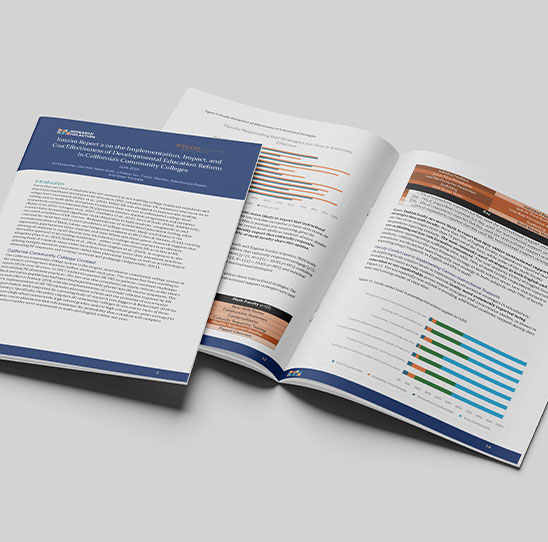
Publication
Interim Report 2 on the Implementation, Impact, and Cost Effectiveness of Developmental Education Reform in California’s Community Colleges
Kri Burkander, Dae Y. Kim, Mark Duffy, Lindsey Liu, Taylor Stenley, , Sean Vannata
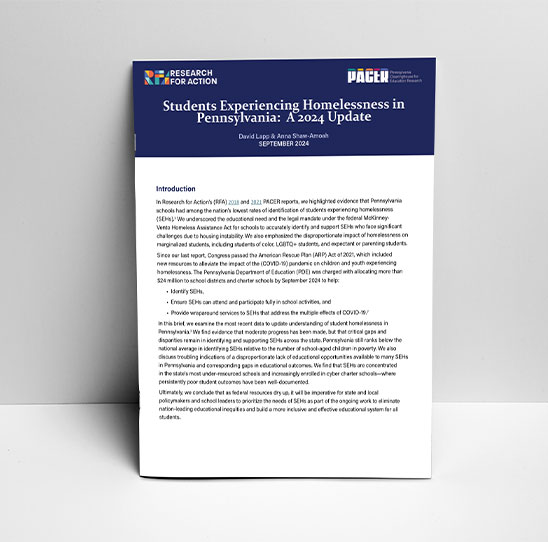
Publication
Students Experiencing Homelessness in Pennsylvania: A 2024 Update
David Lapp, Anna Shaw-Amoah

Publication
The When and How of Keystone Exams in the School District of Philadelphia
Molly Pileggi, Sean Vannata, Alyn Turner